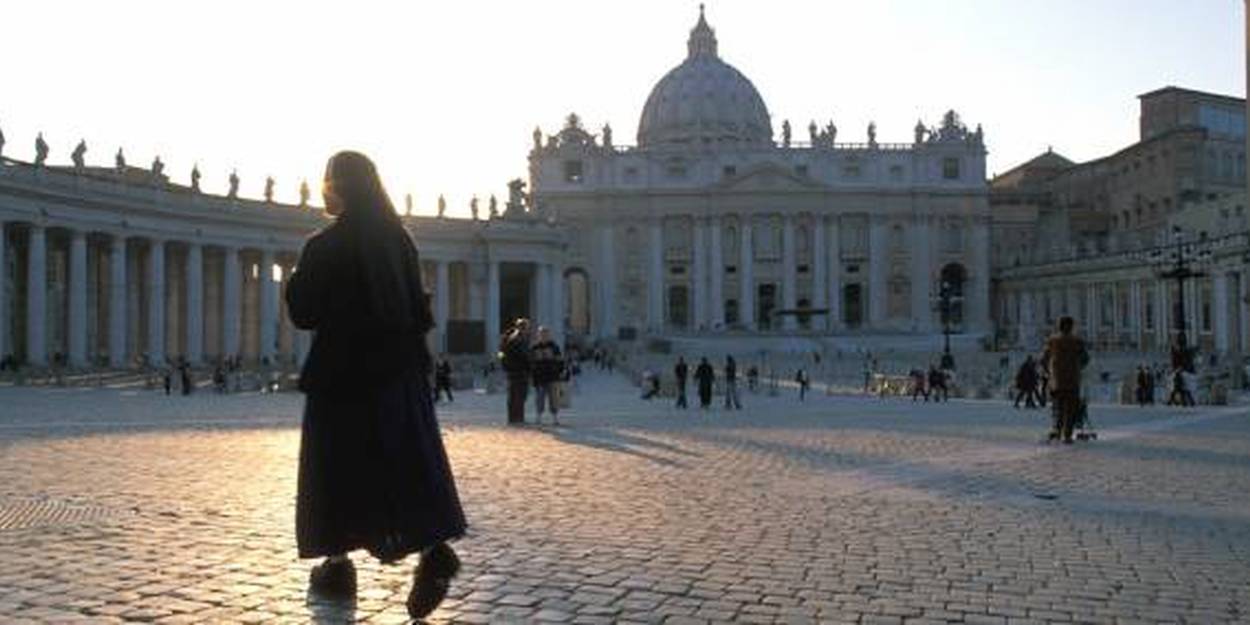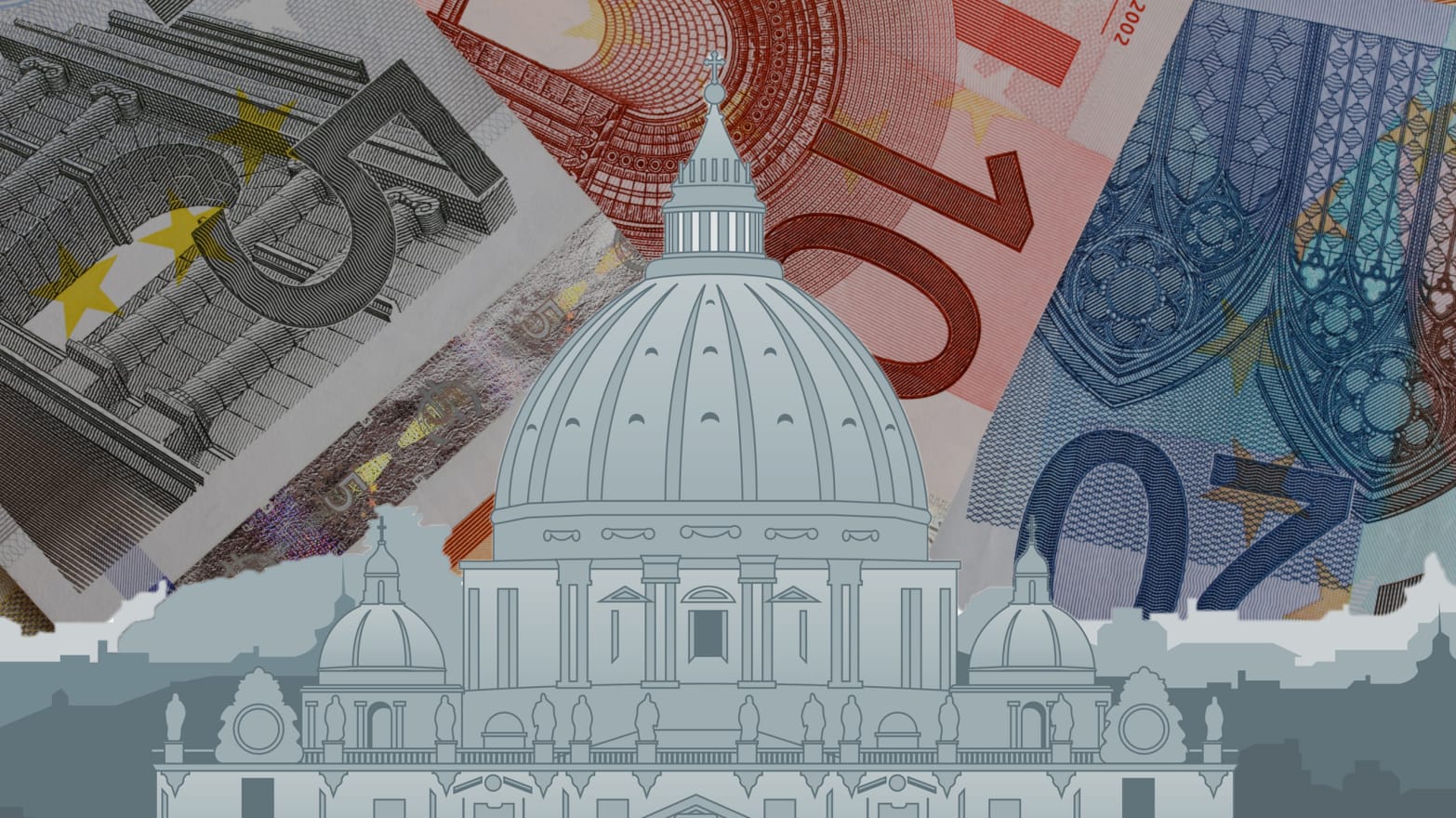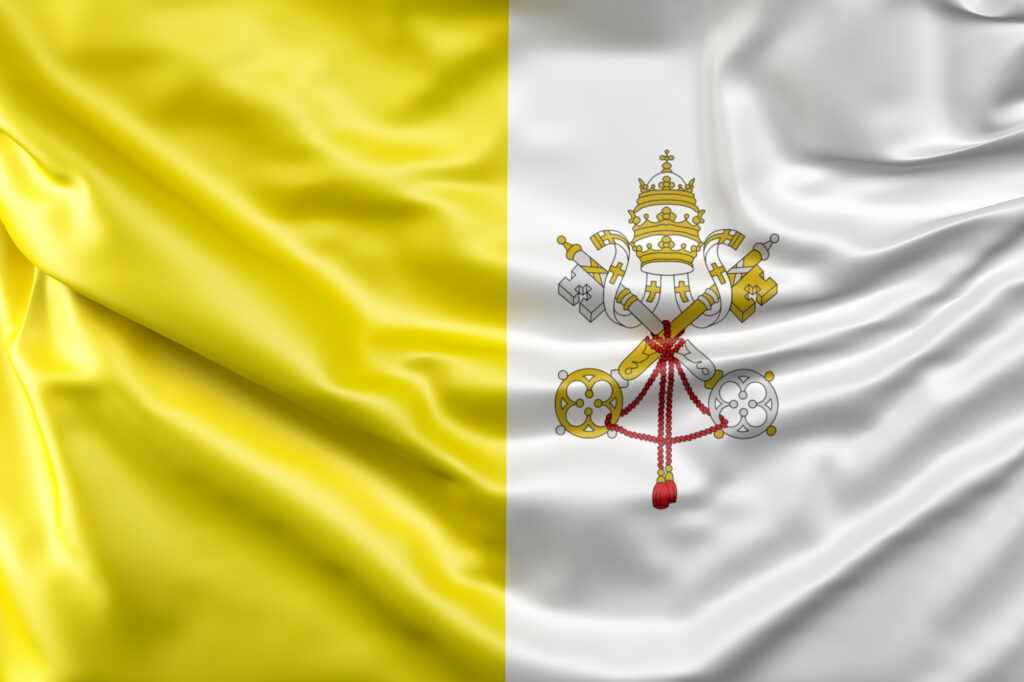By Erika Koutroumpa,
The first thing that comes to mind with the word monarchy is undoubtedly a family — a king and queen reigning over the kingdom, with their princes and princesses in line for the throne, ready to replace their parents when the time comes. While this is the most common form of a monarchy, this is not always the case. The exception lies in a State which often flies under the radar for most people: Vatican City.
Vatican City is a sovereign nation located in the heart of Rome, Italy and it is currently the 18th wealthiest nation in the world per capita. Often dubbed the “world’s last absolute monarchy”, it used to be considered part of Rome until 1929 when it gained its independence from the rest of Italy. Currently, the Holy See enjoys multiple the privileges of an independent nation such as being able to mint its euros, print its stamps, issue passports and license plates, as well as to participate in the United Nations as an observer state.

However, it has many peculiar points which come in tandem with its unique form of government. Here, there is no separation between the state and the church, with the Pope of the Catholic church being considered the Chief of State. The title of the archbishop of Rome is considered a lifetime title, given to the holder after a successful election by the College of Cardinals during the papal conclave soon after the death of the predecessor. The Swiss Guard, unlike most countries, the group of soldiers charged with ensuring the leader’s security, is considered by many to be the smallest army in the world. The Vatican also does not have any taxes since the Catholic Church owns most of the land. In addition, only 450 people have Vatican citizenship, which perhaps makes the most interesting exception in this monarchy. Gaining Vatican citizenship does not follow traditional law principles (jus sanguinis, jus solis, jus loci), ex iure. Mostly held by important members of the clergy and diplomats of the state, even if they do not reside in Holy See territory. Each Vatican state, both the one in Rome and those located overseas, determines its requirements for citizenship acquisition.
The man with absolute power over the State of the Vatican is the pope who is also the bishop of Rome and head of the Catholic Church. The primary role of the pope is that of being the religious leader of the Roman Catholic Church which is estimated to have 1.2 billion followers worldwide. As head of the Church, the pope performs weekly blessings of tourists and pilgrims every Sunday from their private office, a weekly general audience for 5,000 pilgrims in a modern auditorium during winter and out in public at St. Peter’s square in summer, as well as church services for major religious celebrations like Christmas. All bishops worldwide are appointed by the pope and under Vatican law the leader must meet with more than 5,000 bishops from around the world at least every 5 years which roughly translates to 20 members of the clergy per week. The pope also must make many tours and international visits, not just to be in touch with his followers, but also due to the key role that the Catholic Church plays in diplomacy.

The pope’s responsibilities go beyond that of a spiritual leader and negotiator in international affairs. As the face of the church, the pope can alter public perception through their behavior and choices. Currently, Pope Francis is in power since 2013 and has shaken up a large part of the status quo. Since the beginning of his reign, he has opted for a simpler lifestyle, opting for simpler attire, a more economical popemobile and a smaller residence instead of the apostolic palace. His choice of name, that of Saint Francis of Assisi, who dedicated his life to worship and protecting the needy and the environment, spoke volumes for the direction in which the current pope wishes to lead the church towards. His simplicity of manners and lifestyle, use of social media and efforts towards making the church more inclusive have helped his popularity to soar. Pope Francis is actively attempting to reform the Catholic Church, trying to balance the core beliefs of the institution with his own more liberal beliefs.
To begin with, he has chosen a more diverse international group for the members of the Council of Cardinals, in his first Holy Thursday he included a Muslim woman for the washing of the feet ritual and has repeatedly tried to reach out to everyone, regardless of whether they follow Catholicism or not. He has introduced important changes in the marriage annulment process through which he is trying to destigmatize divorce within the community and to reconnect with remarried and divorced Catholics, while he is also trying to reform the way the church functions from the inside by tackling bureaucracy and reorganizing the Vatican Bank. We are currently in a time of rapid economic, social and ideological reformation where change can often contradict basic church dogmas. Compared to other predecessors, the current pope spends less time voicing his opinion on subjects such as abortion and homosexuality and instead tries to unite the church members to fight against climate change and the death penalty.

Perhaps the most interesting rule of the pope is that in international affairs. Holy See has diplomatic relations with 183 countries and the pope is the only religious leader that has been invited as a formal participant in UN conferences and conventions Other than the Pope, the Vatican has the Secretary of State and two people below him. One of them is for internal church matters and the second is the undersecretary for relations with the state. The Vatican has regional leaders like any other state and apostolic delegates which are the types of ambassadors sent to countries with diplomatic relations. In return, countries with whom the Holy See has relations with also sent ambassadors to Rome. Holy See has a unique role in international relations because it is not just a state, but the center of organization of the Catholic Church.
Obama managed to establish a line of communication with Cuba thanks to Catholic bishops in the US and by using diplomatic pouches from the Holy See in the Vatican to the US. Just like any other state, the Holy See has an international agenda that mainly focuses on promoting human rights and world peace, regardless of where the pope is standing. Pope John Paul II was one of the greatest critics of the 2003 war in Iraq, Pope John XXIII intervened around the time of the Cuban missile crisis and current Pope Francis has spoken against the war in Ukraine. The election of Pope John Paul II was considered a catalyst for the fall of the Soviet Union since he was the prior archbishop of Poland, despite the nation being out of communist rule, which prohibited religion.
To conclude, the Holy See might be one of the smallest nations in the world but, as the base of the Catholic Church, it plays a significant role in worldwide affairs. Its leader, the pope, holds immense power and influence not only as the leader of the state but also as the head of the Church and a prominent public figure. Despite possible disagreements with the beliefs of the institution, it needs to be recognized that it has one of the most pacifist foreign policies in the world, encouraging cooperation for the greater good regardless of dogma.
References
-
The Current Legislation on Citizenship in the Vatican City State, 18 July 2012, In Custodia Legis- Law librarians of Congress blog. blogs.loc.gov. Available here
-
“The power of the Pope”- Council on Foreign Relations podcast, hosted by Gabrielle Sierra featuring Timothy Byrnes and Francis Campbell, 13 May 2022. cfr.org. Available here
-
Who, What, Why: What does a pope do?”, David Wiley, 19 March 2013, bbc.com. Available here
-
“Pope Francis, Global Leader”, Bob Woods, Fall 2015, Georgetown Business Magazine, Georgetown University- McDonough School of Business. msb.georgetown.edu. Available here
-
Vatican Country Profile BBC News 20 December 2022. bbc.com. Available here




